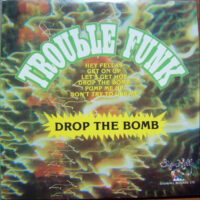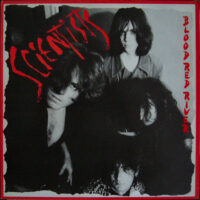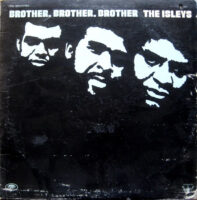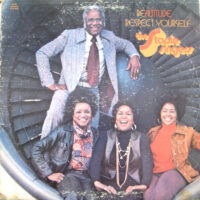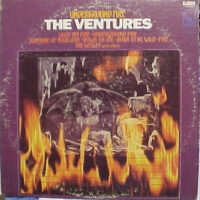
After beginning their career with noisier, more inaccessible albums such as 1/2 Gentlemen/Not Beasts, Loud, and Our Solar System, Maryland group Half Japanese eventually became more proficient on their instruments, wrote more structured songs, and enlisted pro producers such as Shimmy-Disc boss Kramer to oversee their recordings. All of these changes led to their greatest LP, Music To Strip By.
Half Japanese’s wild sixth album rambles all over the musical spectrum like a sugared-up toddler. Led by guitarist/vocalist Jad Fair, Half Japanese animated their blues, jazz, speedcore, R&B, and No Wave with a wrongheaded, primitive minimalism that threw a new light on these styles.
Throughout the record, Fair seems like the kind of guy who got taunted throughout his school years and for revenge later channeled his pent-up venom into music. He possesses the ultimate nerd whine (Fair’s influence manifested in Violent Femmes’ Gordon Gano); on Music To Strip By, he uses it with devastating effect on his quirky songs about a mother who needs to strip to support her family, hot dogs, intellectually slothful teens, demonic ouija boards, prehistoric animals, and FBI gigolos, among many other things.
The album starts with the amazing “Stripping For Cash,” a euphoric gush of high-energy rock that extrapolates upon the peak parts of the Velvet Underground’s “What Goes On.” The rock-ribbed blues of “Thick And Thin” won’t make anyone forget Howlin’ Wolf or Muddy Waters, but for a bunch of geeky Caucasians, it’s pretty tough. “Hot Dog And Hot Damn” sounds like Ornette Coleman’s Prime Time, as interpreted by riled-up 5th-graders. “Sex At Your Parents’ House” channels the Contortions, albeit without the reckless rage of their late frontman, James Chance. This piece broke new ground for Half Japanese.
A shocking departure, “The Price Was Right But The Door Was Wrong” is a J.J. Cale-style speed boogie. Similarly, “US Teens Are Spoiled Bums” manically rambles like something off Meat Puppets II. “Silver And Katherine” is another shocker—a tender, sincere ballad with the feathery gravitas of the Velvet Underground’s “Pale Blue Eyes,” but augmented by blissful sax ripples. The relatively straightforward cover of “La Bamba,” a Mexican folk song that Ritchie Valens made famous with his 1958 hit, is somewhat out of place here, but charming nonetheless. My favorite cut on the album is “Diary,” on which Fair’s voice seethes with what seems like a lifetime of bitterness over the leanest white-boy blues ever: “I’ll write in my diary/What you did to me/And leave it on the table/For all the world to see/… I might even make it into a movie.” Damn.
On much of Music To Strip By, Half Japanese sound like a twisted pop band working on a miniaturist scale. Ex-Butthole Surfer bassist Kramer’s sparse production is ideal for this approach. In this case, less really is more. These tunes will leave you laughing, crying, and disbelieving in gasps. It’s quite possibly the greatest 22-song album ever. -Buckley Mayfield
Located in Seattle’s Fremont neighborhood, Jive Time is always looking to buy your unwanted records (provided they are in good condition) or offer credit for trade. We also buy record collections.




